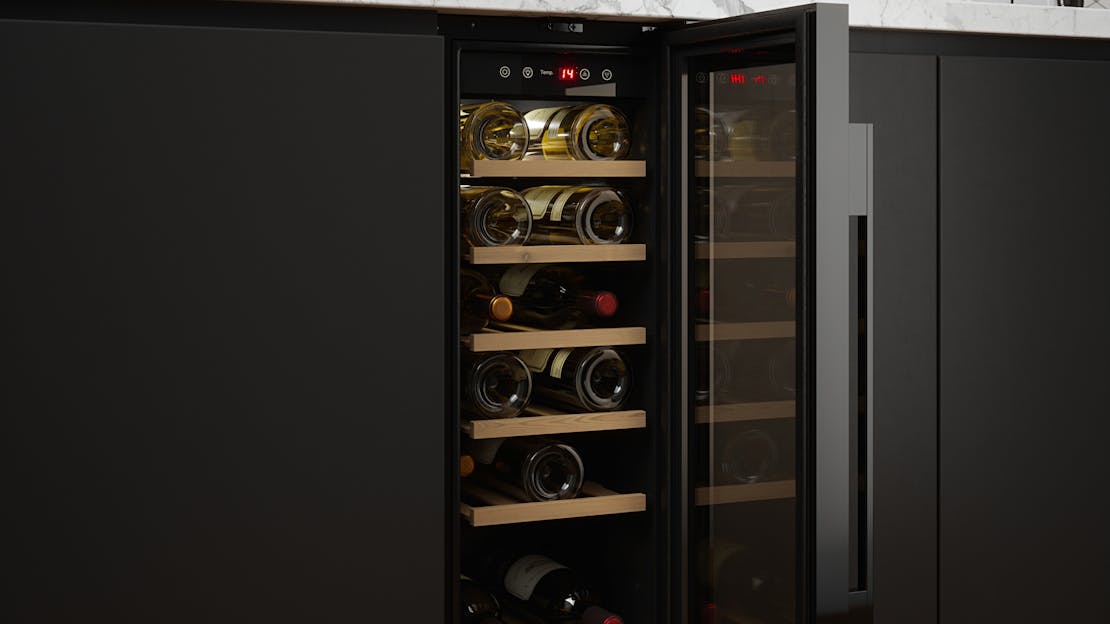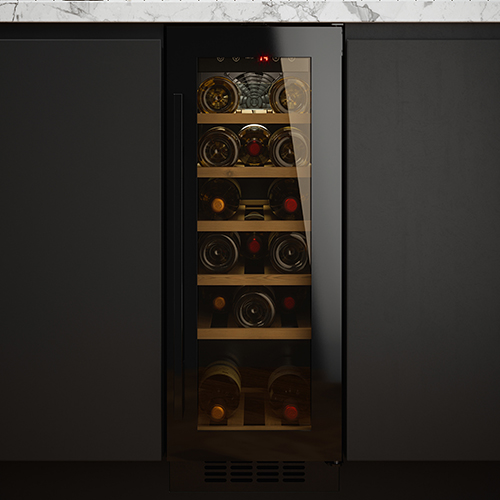
Is a wine cooler the same as a fridge?
A wine cooler and a refrigerator are similar in function but designed specifically for different purposes.
A wine cooler, also known as a wine refrigerator or wine chiller, is designed to store and cool wine bottles at the optimal temperature. Wine coolers are typically equipped with temperature controls that allow you to set and maintain a specific temperature range, usually between 5°C and 18°C, which is ideal for preserving and aging wine.

On the other hand, a regular refrigerator, often referred to as a fridge, is a general-purpose appliance used for storing a variety of food and beverages. While a fridge can also be used to store wine, it may not provide the precise temperature control and specialized features that a wine cooler offers. Fridges are typically set to lower temperatures, usually around 2°C to 4°C, which are cooler than the recommended storage temperature for wine.
So while a wine cooler and a fridge have some similarities, they are designed with different temperature ranges and features tailored to their respective purposes. If you are a wine enthusiast looking to store and age your wine collection, a wine cooler would be a better choice. However, if you simply need a place to keep a few bottles of wine for short-term storage, a regular refrigerator can suffice.
Temperature Control
Wine coolers have precise temperature controls that allow you to set and maintain specific temperature ranges suitable for wine storage. Fridges typically have broader temperature ranges and may not offer the same level of control.
Temperature Stability
Wine coolers are designed to provide stable and consistent temperatures, which is crucial for wine storage. Fluctuations in temperature can negatively affect the quality of wine. Fridges, on the other hand, may experience temperature fluctuations due to frequent door openings and varying food storage requirements.
Humidity Control
Wine coolers often have humidity controls or built-in humidity reservoirs that help maintain the proper humidity levels required for wine storage. This is important to prevent corks from drying out and wine from oxidizing. Fridges generally do not offer specific humidity control for wine.
Vibration Reduction
Wine coolers are designed to minimize vibrations, which can disturb the sediment in wine bottles. Excessive vibration can negatively impact the aging process and overall quality of wine. Fridges, being general-purpose appliances, may produce more vibrations.
Shelves and Storage Configuration
Wine coolers usually feature specialized shelving and storage configurations that are optimized for storing wine bottles, keeping them organized and easily accessible. Fridges typically have adjustable shelves designed for general food storage and may not accommodate wine bottles as efficiently.
In summary, the benefits of using a wine cooler include:
Optimal Wine Preservation: Wine coolers provide the ideal temperature and humidity conditions for storing wine, ensuring that it ages and matures properly.
Convenient and Organized Storage: Wine coolers come with racks or shelves designed to hold wine bottles securely, allowing for easy organization and access to your collection.
Display and Aesthetics: Wine coolers often have transparent doors or display features that allow you to showcase your wine collection, adding a touch of elegance to your living space.
Dedicated Wine Features: Wine coolers may include features like UV-resistant glass doors, interior lighting, and advanced air circulation systems, which help protect the wine from light exposure and maintain consistent temperatures.
Overall, wine coolers offer specialized features and conditions that are specifically tailored for wine storage, ensuring the best possible environment for preserving and aging your wine collection.
